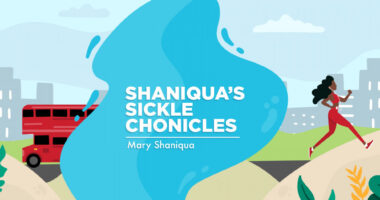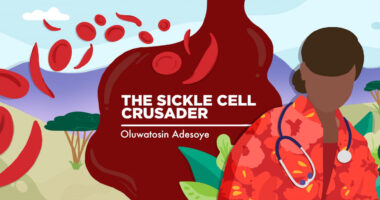Attending a hematology conference as a sickle cell patient is empowering
A columnist connects with experts and advocates at the EHA2025 Congress

I’m writing from the heart of the EHA2025 Congress, hosted by the European Hematology Association (EHA), in Milan, Italy. I’m surrounded by leading experts, researchers, and, most importantly, fellow patients who understand what it’s like to live with sickle cell disease.
Conferences like this aren’t just for clinicians or scientists in lab coats. Attending as a patient is not only eye-opening but also deeply empowering. If you’ve ever questioned whether you, as someone living with sickle cell, should attend a hematology conference, let me say this clearly: Yes, you absolutely should.
One of the biggest benefits of attending an EHA conference is getting firsthand exposure to topics that directly impact our care — including those of regulatory importance. These include the behind-the-scenes decisions that influence which treatments get approved, how clinical trials are designed, and how new therapies are priced and accessed.
As patients, we may often feel left out of these conversations. But here, I’ve been able to join sessions in which regulators, researchers, and clinicians talk about sickle cell in ways that affect our lives. And I’m not just listening; I’m learning how to speak their language. Knowledge truly is power, and understanding the system helps us better advocate for ourselves and our community.
Global connections, local impact
One of the most inspiring parts of this experience has been meeting people from around the world who live with sickle cell. I’ve spoken with patients and advocates from Africa, Europe, the Americas, and beyond, and it’s been powerful to compare notes.
In some countries, access to hydroxyurea or newer therapies is limited. In others, routine care like screening for stroke risk or managing pain crises is more advanced. Learning about these differences has reminded me of how much work we still have to do, but also of the innovations we can advocate for in our own healthcare systems.
It’s comforting — and motivating — to realize that we’re not fighting this battle alone.
In addition, sickle cell disease often doesn’t get the visibility it deserves. But here at the EHA conference, I’ve connected with patient advocates affected by conditions like thalassemia, hemophilia, and rare blood cancers. These groups have built strong advocacy networks and have had major wins in research and policy.
Hearing how they’ve lobbied for access to better care, developed educational campaigns, or worked alongside pharmaceutical companies gives me hope — and strategy. We don’t need to reinvent the wheel; we can learn from their models and adapt them for the sickle cell community.
Plus, there’s something deeply healing about being in a room full of people who “get it” — the fatigue, the unpredictability of pain crises, the healthcare battles. At the EHA Congress, I’ve had the chance to connect with other patients who are leading local organizations, raising awareness, and creating online platforms — all who, like me, are using their lived experience as a tool for change.
These are not just contacts. The network I’ve built here is one I’ll carry forward long after the conference ends.
Being seen and heard
Finally, and perhaps most importantly, just being present at a conference like this sends a powerful message. It reminds the hematology world that patients are not just passive recipients of care. We are experts in our own right. Our voices matter in the research room, at the policy table, and in shaping the future of sickle cell treatment.
Attending EHA2025 has been more than an advocacy development opportunity — it’s been a personal revolution. If you ever have the chance to attend a hematology or rare disease conference as a patient, take it. Go not just to listen, but to speak, and not just to learn, but to teach.
We, the patients, are living the reality of this illness. We are the policy influencers. The storytellers. And we deserve a seat at every table where our futures are being shaped.
Note: Sickle Cell Disease News is strictly a news and information website about the disease. It does not provide medical advice, diagnosis, or treatment. This content is not intended to be a substitute for professional medical advice, diagnosis, or treatment. Always seek the advice of your physician or other qualified health provider with any questions you may have regarding a medical condition. Never disregard professional medical advice or delay in seeking it because of something you have read on this website. The opinions expressed in this column are not those of Sickle Cell Disease News or its parent company, Bionews, and are intended to spark discussion about issues pertaining to sickle cell disease.








Leave a comment
Fill in the required fields to post. Your email address will not be published.